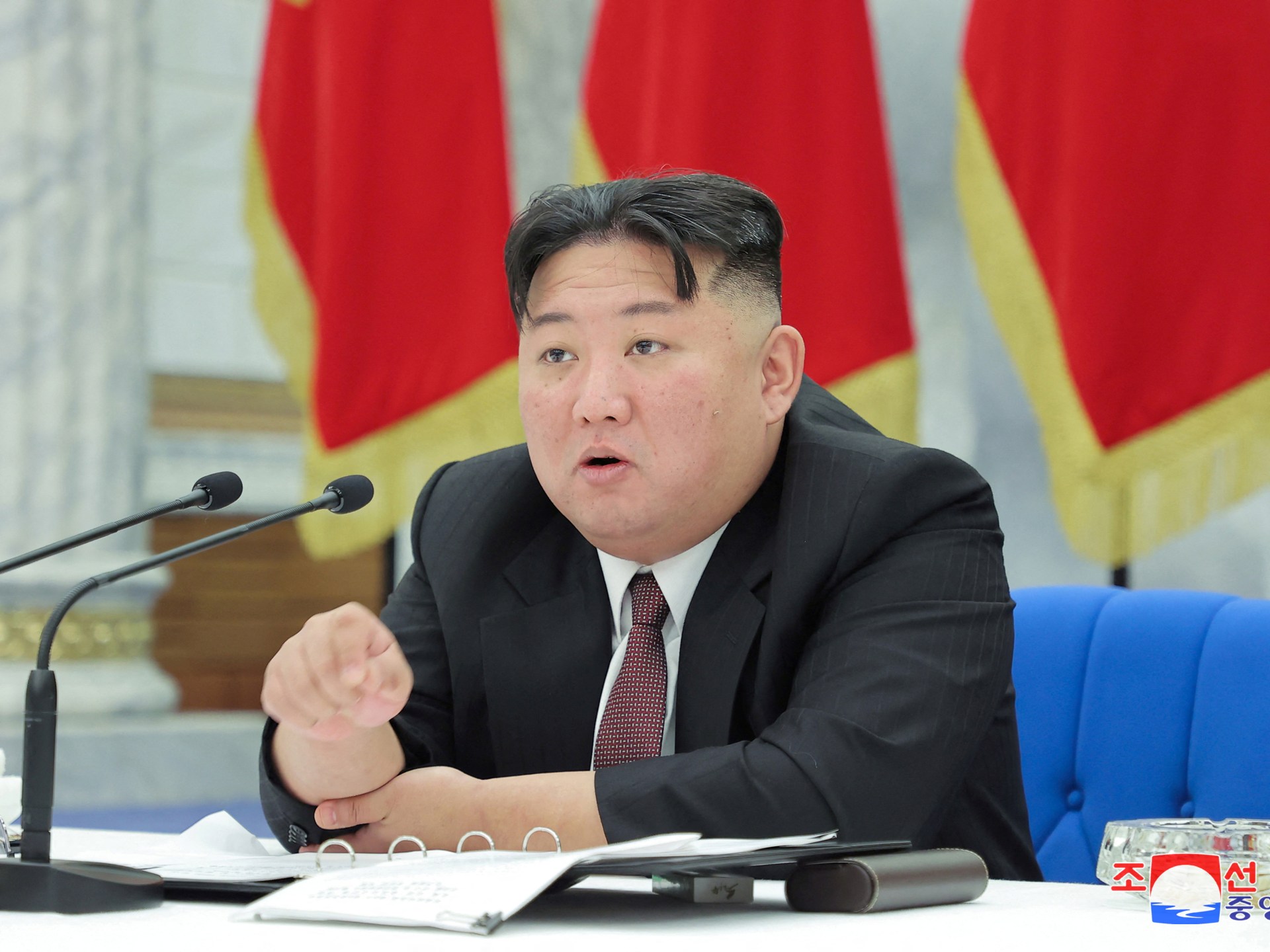Kim orders an ‘exponential increase’ in N Korea’s nuclear arsenal
Kim’s comments came as North Korea fired a short-range ballistic missile in a rare late-night, New Year’s Day weapons test.
North Korean leader Kim Jong Un has called for an “exponential” increase in the production of nuclear warheads and ordered the development of a new intercontinental ballistic missile (ICBM) to counter the United States and South Korea.
Kim’s statement was released on state media on Sunday, hours after North Korea fired a short-range ballistic missile off its east coast in a rare late-night New Year’s Day weapons test.
During his comments at a key meeting of the ruling Worker’s Party, Kim accused Washington and Seoul of carrying out a “plot to isolate and stifle” North Korea, calling it “unparalleled in human history”, according to the official Korean Central News Agency (KCNA). He said the situation called for Pyongyang to “double down our efforts to strengthen our military power overwhelmingly” and “to safeguard our sovereignty, safety and basic national interest to cope with the dangerous military moves by the US and other hostile forces that target us”, KCNA reported.
“It highlights the importance and necessity of mass producing tactical nuclear weapons and calls for an exponential increase of the country’s nuclear arsenal,” Kim said.
He also ordered the manufacturing of a new type of ICBM “with a rapid nuclear counterattack capability as its basic mission,” KCNA said.
Kim also reportedly said North Korea plans to launch its first military spy satellite soon.
The KCNA report came as South Korea’s military said it detected a missile launched from North Korea’s capital region around 2:50am local time on Sunday (17:50 GMT on Saturday). The South Korean Joint Chiefs of Staff said the missile travelled about 400km (250 miles) before falling into the water between the Korean Peninsula and Japan.
The Joint Chiefs of Staff called the launch “a grave provocation” that hurts peace and security on the Korean Peninsula and around the world. It said South Korea closely monitors North Korean moves in coordination with the US and maintains readiness to deal with any provocations.
The US Indo-Pacific Command said in a statement that the launch highlights “the destabilising impact” of North Korea’s unlawful weapons programmes. It said US commitments to defend South Korea and Japan “remain ironclad”.
North Korea test-fired more than 70 missiles last year. Some experts say the country eventually aims to boost its weapons arsenals and increase pressure on its rivals to win concessions such as sanctions relief.
On Saturday, North Korea fired three short-range ballistic missiles towards its eastern waters.
KCNA said the country had conducted test-firings of its “super-large” multiple rocket launcher to test the weapon’s capability. It said three shells fired from the launcher accurately hit an island target off the country’s eastern coast, and that North Korea fired another shell from the launcher towards its eastern waters on Sunday.
Outside experts categorise weapons fired from the launcher as ballistic missiles because of their trajectories, ranges and other characteristics.
North Korea’s missile launch for a second straight day could be a response to rival South Korea’s recent rocket test related to its plan to establish space-based surveillance to better monitor North Korea. On Friday, South Korea’s military said it test launched a solid-fueled rocket, a type of space launch vehicle that it plans to use to put its first spy satellite into orbit in coming years.
Animosities between the rival Koreas have deepened since early last week, when South Korea accused North Korea of flying drones across the countries’ heavily fortified border for the first time in five years and sent its own drones towards its northern neighbour.
South Korea acknowledged it failed to shoot down any of the five North Korean drones it said were found south of the border. But South Korea has promised to bolster its air defence network and get tough on future provocations by North Korea.




